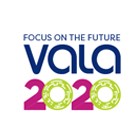The Future of Research: Hunting for Relevant Content in a Sea of Information
VALA2020 SC10
Thursday 13 February 2020, 1:45 – 3:25
Hamish McDonald
- Yewno, Inc
Please tag your comments, tweets, and blog posts about this session: #vala2020 #sc10
View the presentation slides here:
Abstract
Libraries are the epicenter of the University community. This session aims to explore and show evidence-based information about how AI can support research, help Universities manage their repositories, enhance exploration, and promote visual learning through data visualization. Attendees will understand how AI technology works to accomplish these goals, while gaining insights through real-life use cases where this technology has been successfully applied.
One of the greatest challenges librarians face is supporting research and aiding with resource discovery. As the breadth of digitized titles grows, “keyword search” becomes insufficient. Librarians are having to look for more ways to navigate their massive repositories, connect their communities and surface relevant texts for their researchers, faculty and students.
Another challenge is evaluating the quality of content. Open Access is being chosen by a growing number of research authors due to its high visibility, low cost of publishing, opportunities for collaboration, and power to start a cross-disciplinary conversation. There certainly is a great deal of value to be found in OA, but the OA corpus can be a very problematic space for discovery, making finding quality and relevancy difficult in the mass of poorly described OA literature.
In this session, we will see how Artificial Intelligence is now empowering librarians to manage their collections and navigate open access material. Visualization plays a significant role when sorting through massive amounts of information, particularly across disciplines. Where the linear display of traditional keyword search falls short, AI tools prioritise data visualization.
Semantic Visualisation tools connect concepts in and between documents giving the user the power to navigate to what is most relevant using a visually engaging knowledge graph.
In this session we will demonstrate how knowledge graphs work to tell a story with data, enhance visual learning and encourage interdisciplinary research.
This work is licensed under a Creative Commons Attribution-NonCommercial License.

